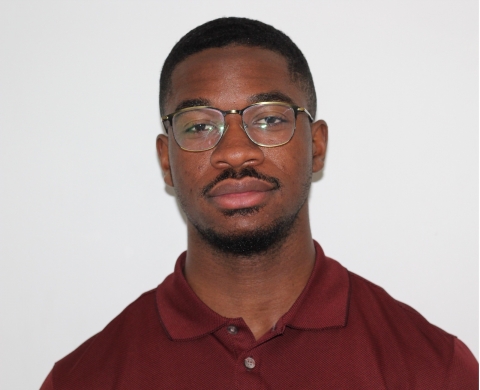Earning an MD/PhD is a long road with many variables contributing towards one's end goal. ARCS Illinois Scholar Bakare Awakoaiye says research is full of twists and turns, both expected and unexpected, good and bad.
Awakoaiye is in his fifth year of pursuing his MD/PhD in Microbiology and Immunology at Northwestern University, which typically takes 8+ years. In the lab, he is investigating the immune response and protection provided by combining different types of vaccines to target the same virus. He is looking for ideal vaccine combinations to target SARS-CoV-2 and HIV.
After completing two years of medical school, he joined the Northwest lab of Pablo-Penaloaza-MacMaster in 2021 because the research was similar to his prior experience at a Genentech lab, a company considered the founder of the biotech industry.
“At Genentech, I worked in a cancer immunology lab,” Awakoaiye explains, “I investigated on a cellular level -- T cells, B cells, and all these other immune cells really -- and understanding how they contribute to either just the progression of a disease that was caused by a virus or how they contribute to any immune responses that occur when you receive a vaccine.”
The COVID pandemic hit when Awakoaiye was in his early days of attending Northwestern Medical School. As a result, a race ensued for a vaccine, bringing mRNA vaccines to the forefront of vaccine research, which led to exploring further applications for mRNA vaccines.
“Can we replace current conventional vaccines using this mRNA concept? Another question would be, can we use this to advance research into other diseases that we don't currently have approved? Like HIV virus, for example?” he questions.
“As far as I know, I don't think anyone's tried to combine the same types of vaccines that I'm working with. I think the idea of mixing and matching is not standard, but it's something that's explored,” he says.
“I would love to reach that endpoint with this project where I can say, ‘I've exhausted every possible avenue, and this is everything that I've discovered'. If you have this specific combination, you see great effects, and it's proven across various cellular and mouse experiments. It has great potential for translation into human research. It works in a plethora of different ways, or it opens other avenues we didn't even think to explore,” Awakoaiye says.
He appreciates that at Northwestern, he can conduct research “literally maybe a floor away or down the hall from actual patients.”
Awakoaiye says he is grateful to ARCS Foundation for his Scholar Award. “There is another ARCS Scholar at Northwestern, and we were already friends, but when we found out in our first year that we were both ARCS Scholars, it was pretty cool.” He says that ARCS events have “opened the doors to communicating science.”

